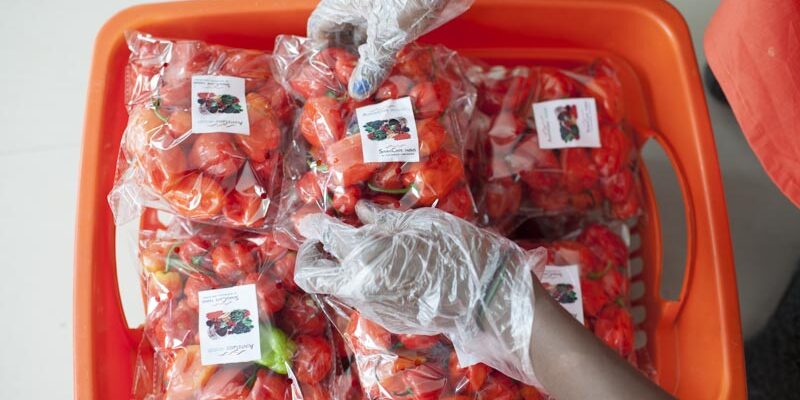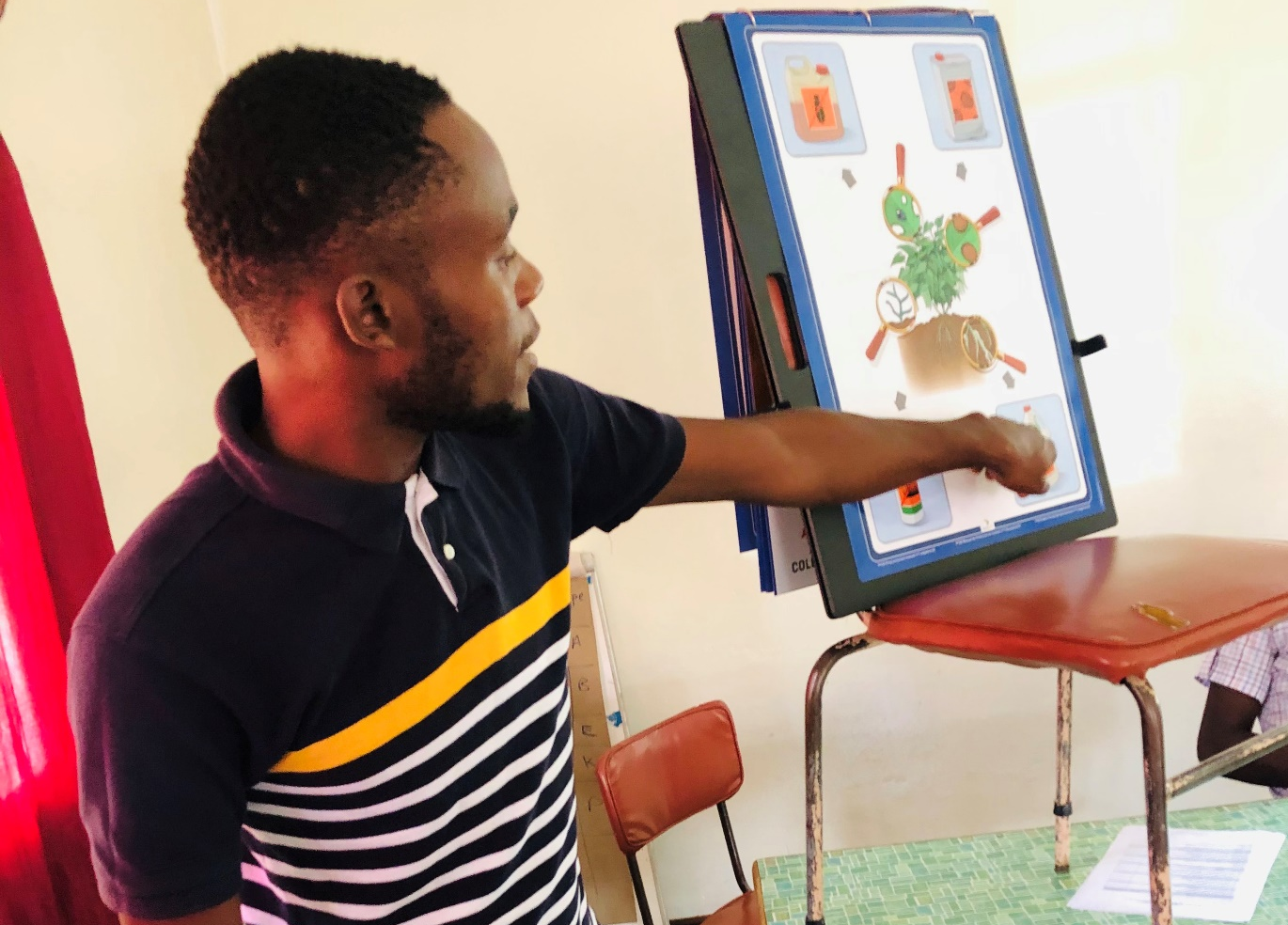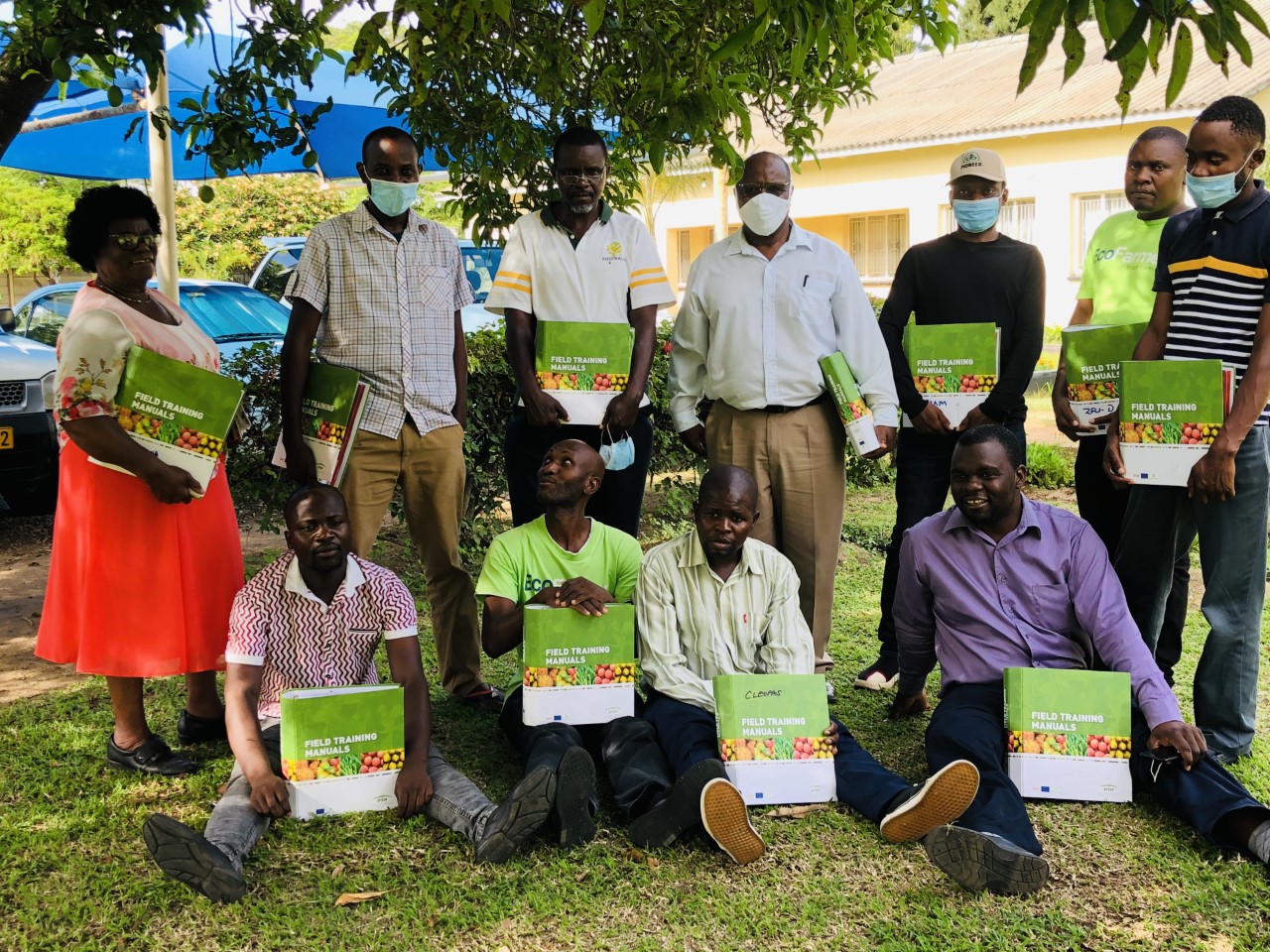
‘The best training technique ever.’ ‘The training was well delivered. The trainer was excellent. The training is very relevant to my scope of work. It was worth enrolling for the training.’ ‘The training was very educative & I learnt a lot and as an individual I feel empowered.’ ‘I really enjoyed the whole training programme to the full. Exercises and role plays were fantastic and very educative. The skills gained will go a long way in improving face-to-face farmer training as well as presentation methods. The process was a very worthwhile endeavour to say the least.’ During 2020, COLEACP responded to a request from the Zimbabwe Farmers’ Union (ZFU), the largest farmers’ interest organisation in the country, to support its training unit and technical staff to strengthen their capacity in good agricultural practices, with a focus on food safety and quality management, along with awareness of quality standards. Through blended on-site and remote learning (enhanced in response to Covid-19 restrictions), and via COLEACP’s distinctive cascading training system, the training will have a sizeable positive impact on Zimbabwe’s horticultural sector. Cascading training means that information is transmitted from the trainee acting as first relay through successive layers among the populations of workers, producers and members of their communities. Through this approach, COLEACP’s training in Zimbabwe can potentially reach out to ZFU’s over 1 million members, mostly smallholder farmers. Each member of ZFU technical staff who receives COLEACP training will be expected to conduct several training sessions in their province, reaching out to several farmers. By following the key messages and adopting good practices in crop protection and the safe use of pesticides, hygiene and traceability, these trained farmers will gain the capacity to contribute towards increasing the level of horticultural exports from Zimbabwe to the European Union and to other local, regional and international markets. COLEACP has empowered these farmers to build a better and more sustainable future for themselves and their families. As ZFU already provides training to its members through workshops, study circles, farmer field schools and demonstrations, the first action was to assess members’ training needs and schedule a comprehensive training programme allocating ZFU resources. A one-day training needs assessment workshop, attended by 18 ZFU staff, took place online in March 2020, at a time when Zimbabwe was under lockdown due to the Covid-19 pandemic. The training needs of staff and ZFU members were considered in a structured way which looked at the whole production flow and process. The training needs identified were formalised as training courses/workshops, and a training programme that matched members’ needs was developed. The assessment identified ZFU training needs in technical areas of crop protection and safe use of pesticides, food hygiene and traceability, food safety management, regulations and private standards, and training-of-trainers. Participants began with 16 weeks’ self-study on the COLEACP e-learning platform. They took six courses, each at two levels, from two thematic areas: Agricultural Production and Processing, and Food Safety. Under Agricultural Production and Processing they studied Crop Protection (Course 3) and Best Crop Protection Practices (Course 5). Under Food Safety, they covered Hygiene and Food Safety (Course 2), Management of Food Safety Risks (Course 1), Traceability (Course 3) and Regulations and Private Standards (Course 4). After the e-learning, participants received training in crop protection and safe use of pesticides; food hygiene, traceability and food safety management; and in COLEACP’s Field Training Workshop method. The training was done following a blended learning approach – a mixture of online and face-to-face training delivery – in order to limit face-to-face training due to the Covid-19 pandemic.Empowerment through training for ZFU technical staff

Potential to reach a million farmers

